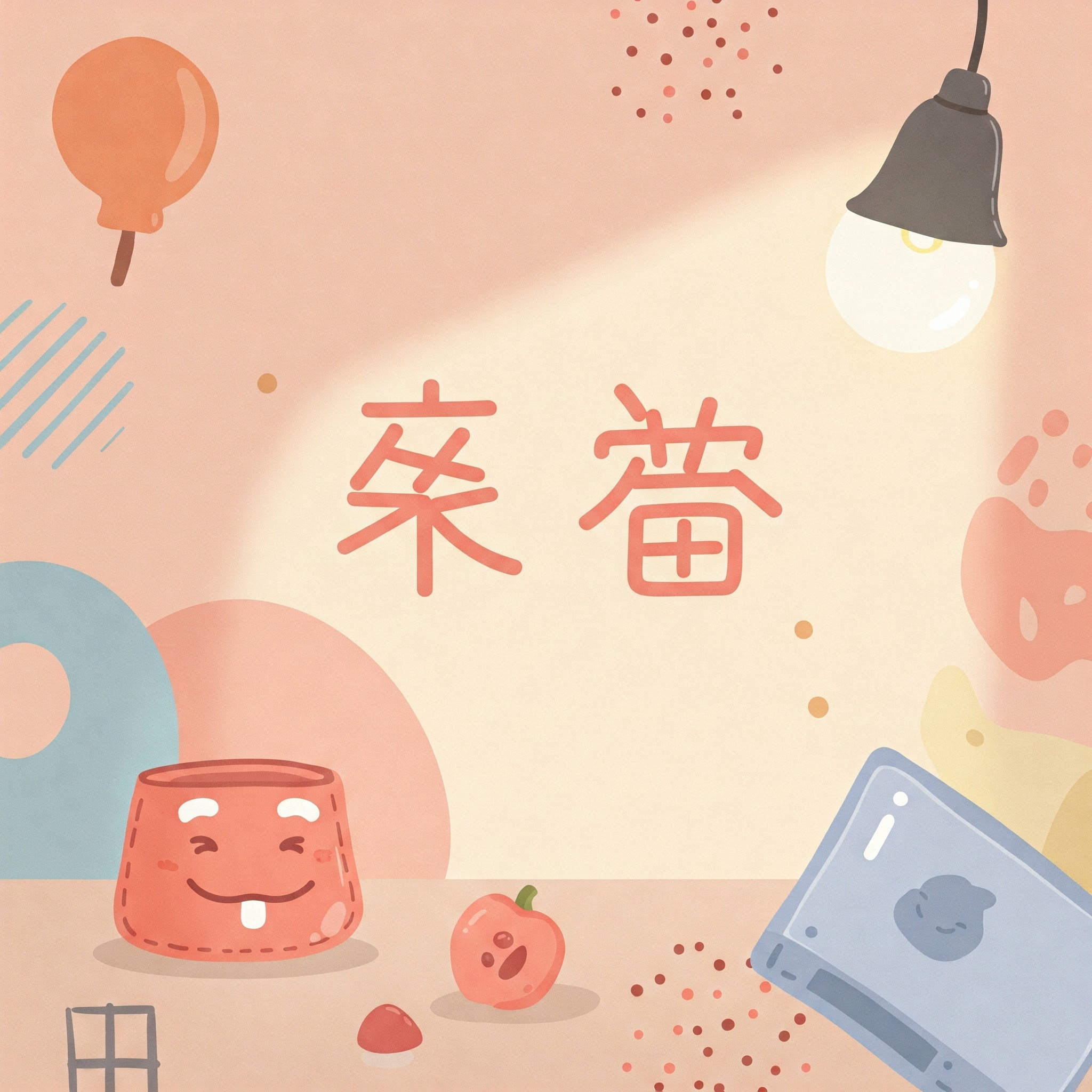Objects and Ownership in Chinese
Learning to talk about everyday objects and expressing who they belong to is important for basic Chinese conversations! In this lesson, you'll learn common object names and how to say something belongs to you or others.
Common Objects
Let's learn these important words for everyday items:
Furniture Words
These basic furniture terms are useful for talking about your home:
Ownership Words
These essential words help you express who things belong to:
Understanding Object Words
Let's learn more about each of these common object terms:
Thing/Stuff
东西thing means "thing" or "stuff" - a general word for objects. For example: 这是什么东西? (What is this thing?)
Book
书book means "book" - something you read or study from. For example: 我有一本书 (I have a book).
Pen
笔pen, writing instrument means "pen" - what you write with. For example: 这是我的笔 (This is my pen).
Mobile Phone
手机mobile phone, cellphone means "mobile phone" or "cell phone" - an essential modern device. For example: 我的手机在桌子上 (My phone is on the table).
Computer
电脑computer means "computer" - either a desktop or laptop. For example: 她有一台电脑 (She has a computer).
Clothes
衣服clothing, clothes means "clothes" - what you wear. For example: 这些是我的衣服 (These are my clothes).
Cup
杯子cup means "cup" - what you drink from. For example: 我要一个杯子 (I want a cup).
Fruit
水果fruit means "fruit" - healthy snacks. For example: 我喜欢吃水果 (I like to eat fruit).
Measure Word for Books
本measure word for books is a measure word for books. For example: 三本书 (three books).
Understanding Furniture Words
Now let's learn about these basic furniture items:
Table/Desk
桌子desk, table means "table" or "desk" - a flat surface with legs. For example: 书在桌子上 (The book is on the table).
Chair
椅子chair means "chair" - what you sit on. For example: 请坐在椅子上 (Please sit on the chair).
Understanding Ownership Words
These words help you talk about who things belong to:
Possessive Particle
的of, 's is the possessive particle - added after a pronoun to show ownership. For example: 我的my, mine (mine), 你的your, yours (yours).
Completion Marker
了completed action marker is a completion marker - used to indicate that an action is completed. For example: 我买了一本书 (I bought a book), 我吃了饭 (I ate food).
To Have
有have means "to have" or "to possess" - used to express ownership. For example: 我有一本书 (I have a book).
This
这this means "this" - for referring to something near you. For example: 这是我的手机 (This is my phone).
That
那that means "that" - for referring to something further away. For example: 那是你的书吗? (Is that your book?).
My/Mine
我的my, mine means "my" or "mine" - showing that something belongs to you. For example: 这是我的笔 (This is my pen).
Your/Yours
你的your, yours means "your" or "yours" - showing that something belongs to the person you're talking to. For example: 那是你的电脑吗? (Is that your computer?).
Mini Ownership Dialogues
Try practicing these simple conversations about objects and ownership:
Dialogue 1: Whose Phone Is It?
Dialogue 2: Looking for a Book
Dialogue 3: Shopping for Books
More Useful Object Words
Here are some more common objects you might want to talk about:
- 钱包 - "wallet" - where you keep your money and cards
- 钥匙 - "key" - for unlocking doors
- 眼镜glasses, eyeglasses - "glasses" - for better vision
- 手表wristwatch - "watch" - for telling time
- 帽子hat, cap - "hat" - something you wear on your head
- 鞋 - "shoes" - what you wear on your feet
Expressing Ownership Patterns
Here are some useful patterns for talking about objects and ownership:
- 那是谁的物品 - Whose [item] is that?
- 这是我的物品 - This is my [item].
- 你有(一个)物品 - You have a(n) [item].
- 物品地点 - The [item] is at [location].
Cultural Notes about Objects and Ownership
Understanding these cultural aspects will give you insight into Chinese attitudes toward possessions:
- Gifting is important in Chinese culture, often including items like tea, fruit, or specialty foods
- Business cards are treated with respect and should be received with both hands
- Borrowing and lending are common among friends and family in Chinese culture
- Traditional Chinese households often have specific objects for good luck and prosperity
- Red color is considered lucky, and many Chinese people prefer red objects for important items
Practice Tips
- Label objects around your home with their Chinese names
- Practice saying 这是我的... for different things you own
- Ask questions about ownership using 这是谁的?
- Make a list of 10 objects you own and practice saying 我有...
With these object and ownership words, you'll be able to talk about the things you have and identify who things belong to in Chinese! Whether you're asking about someone's possessions or explaining what's yours, these terms will help you communicate clearly.
